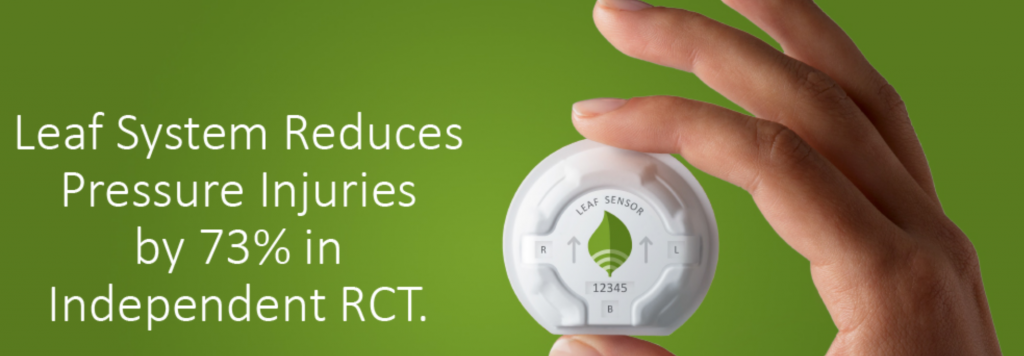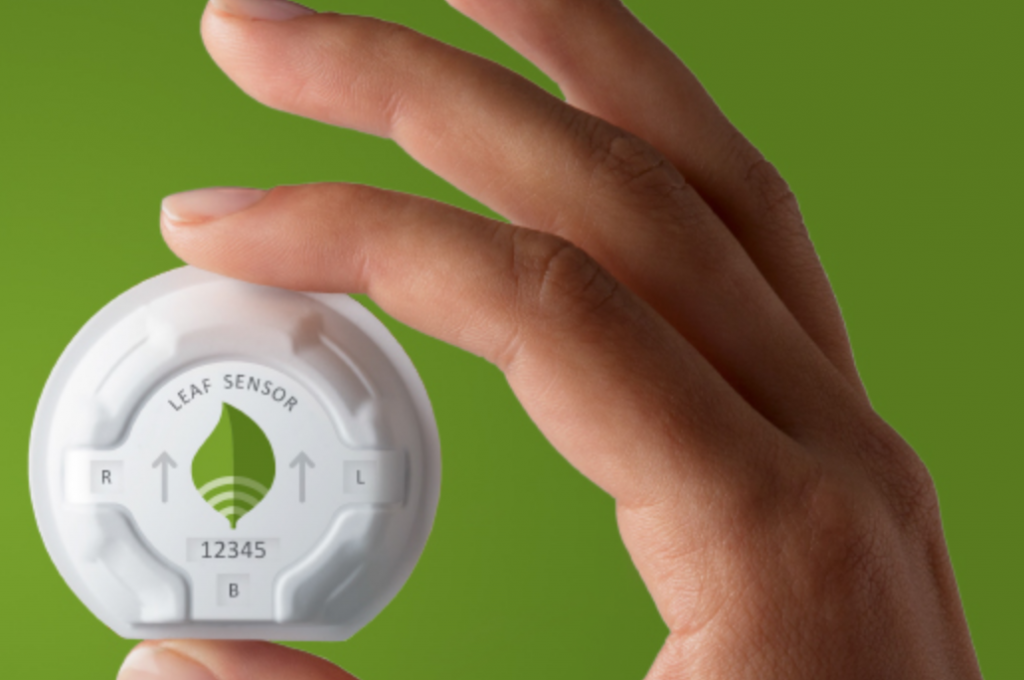An estimated that more than 2.5 million people suffer from at least one pressure injury each year. There are ways to reduce the risk. A new clinical study by researchers at Stanford Health Care looked at whether a wearable patient sensor could improve patient outcomes at risk for pressure injuries. The study, “Effect of a wearable patient sensor on care delivery for preventing pressure injuries in acutely ill adults, a pragmatic randomized clinical trial (LS-HAPI study), is available in the online issue of International Journal of Nursing Studies.
The study found that patients randomized to be treated by Leaf were 73% less likely to develop a pressure injury. The optimized care delivery enabled by Leaf translated into a significant reduction in hospital-acquired pressure injuries. The investigator-initiated, prospective, blinded, randomized, controlled trial involved over 1,200 patients and over 100,000 hours of data was analyzed. Patients were randomized to either a Treatment or Control group. In the treatment group, the Leaf sensor was used to help ensure that patients were repositioned with sufficient frequency and quality.
The Leaf sensor continuously monitors all patient movements and is designed to notify providers if repositioning is required to prevent a pressure injury. The sensor seamlessly monitors patient position and activity, regardless of whether they are in bed, a chair, or ambulating. Pressure injuries are among the nation’s most common preventable facility-acquired conditions, affecting more than 2.5 million patients a year. Pressure injuries are also one of the key outcomes measures that factor into hospital quality metrics, which are being increasingly tied to reimbursement.

Download a free white paper here on the Leaf Healthcare system.
“This large, randomized, controlled trial confirms what has been demonstrated in smaller studies and is consistent with real-world customer experience,” said Leaf Healthcare CEO and co-founder Barrett Larson. “This study is an important step towards redefining the standard of care for pressure injury prevention.”Several studies have shown the Leaf System improves patient turning/mobility, reduces pressure injury rates, helps nurses prioritize patient care, improve caregiver workflow, and saves hospitals non-reimbursed costs associated with the treatment of pressure injuries. Click Here for More on the Leaf System
Conclusion/ “Among acutely ill adult patients requiring Intensive Care Unit admission, the provision of optimal turning was greater with a wearable patient sensor, increasing the total time with turning compliance and demonstrated a statistically significant protective effect against the development of hospital acquired pressure injuries. These are the first quantitative data on turn quality in the Intensive Care Unit and highlight the need to reinforce optimal turning practices. Additional clinical trials leveraging technologies like wearable sensors are needed to establish the appropriate frequency and dosing of individualized turning protocols to prevent pressure injuries in at-risk hospitalized patients.”
Click Here for More Medical Professional Information on Wound Care.





